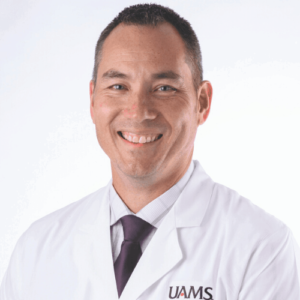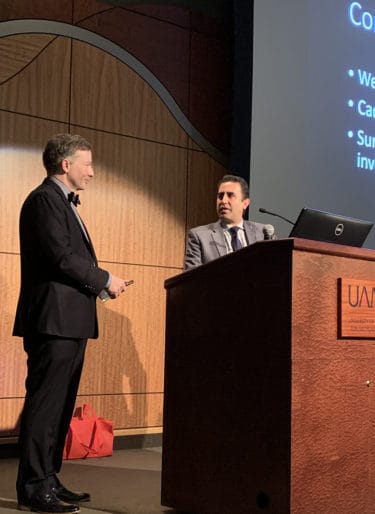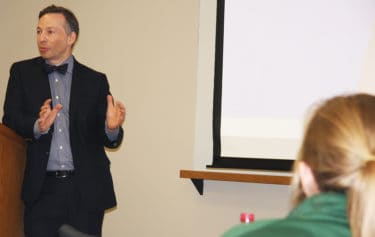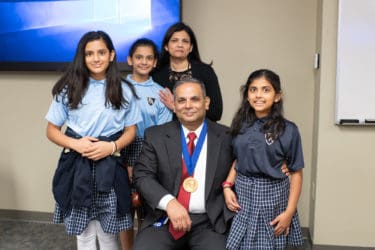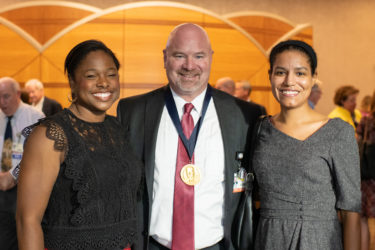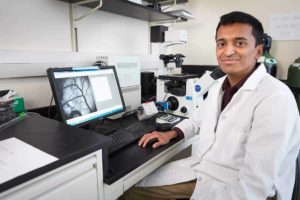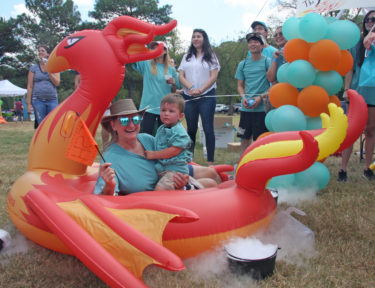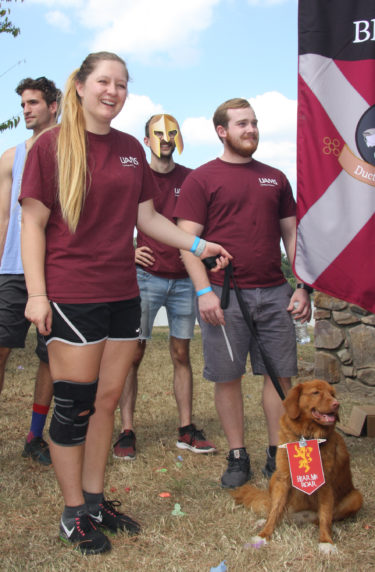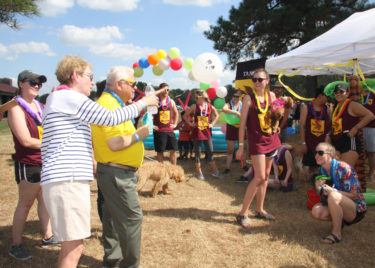David Nagy, M.D., has rejoined the Department of Anesthesiology as an Assistant Professor and Director of Trauma Anesthesia. He received his medical degree and completed an anesthesiology residency at Indiana University in Indianapolis. Dr. Nagy spent several years in private practice before joining UAMS in 2017 as an Assistant Professor. He left UAMS in 2018 to complete a trauma fellowship at Regional One Hospital at the University of Tennessee Health Science Center in Memphis.
Sukanthi Kovvuru, M.D., has joined the Department of Neurology as an Assistant Professor and neuromuscular specialist. Dr. Kovvuru received her medical degree at Narayana Medical College in Andhra Pradesh, India. She completed her residency in neurology at UAMS, followed by a neuromuscular fellowship at Yale University. Dr. Kovvuru is a member of the American Academy of Neurology and the American Association of Neuromuscular & Electrodiagnostic Medicine. She has expertise in treating Myasthenia Gravis, Guillain-Barre Syndrome and ALS, and performs EMG testing.
Department of Orthopaedic Surgery
Ramon Ylanan, M.D., has joined the Department of Orthopaedic Surgery as an Assistant Professor and orthopaedic sports medicine specialist in Fayetteville. He previously served for more than seven years as the head team physician for the Arkansas Razorbacks, a key focus of his clinical practice with Advanced Orthopedic Specialists. Since 2015, he has also directed the UAMS Northwest Primary Care Sports Medicine Fellowship, the first Accreditation Council for Graduate Medical Education (ACGME) accredited sports medicine program in Arkansas.
Dr. Ylanan received his medical degree from Ross University School of Medicine in 2004. He completed a residency in family and community medicine and served as chief resident at the University of Missouri-Columbia. He continued his training as a fellow at the American Sports Medicine Institute at the Andrews Sports Medicine and Orthopaedic Center in Birmingham, Alabama. Read more in the UAMS Newsroom.
Department of Radiation Oncology
Leslie Harrell, D.O., has joined the Department of Radiation Oncology as an Assistant Professor. Dr. Harrell is a graduate of the University of North Texas Health Science Center, Texas College of Osteopathic Medicine in Fort Worth. She completed an internship in internal medicine at the Naval Medical Center in Portsmouth Virginia. She completed her residency in radiation oncology at the University of Mississippi Medical Center in Jackson, and a fellowship in proton and pediatric radiation oncology at the University of Texas MD Anderson Cancer Center in Houston. Dr. Harrell, who previously practiced radiation oncology in Oklahoma City, specializes in pediatric cancer, breast cancer and cancers of the central nervous system. Read more in the UAMS Newsroom.
Anna M. Privratsky, D.O., has joined the Department of Surgery as an Assistant Professor in the Division of Trauma, Critical Care & Acute Care Surgery. Dr. Privratsky received her Doctor of Osteopathic Medicine from the Texas College of Osteopathic Medicine in Fort Worth. She completed her general surgery internship and residency as well as her surgical critical care fellowship at UAMS. Dr. Privratsky is board certified by the American Board of Surgery. Her clinical practice will focus on general surgery, acute surgery and trauma surgery as well as surgical critical care. She will see also see patients in the Surgery Clinic.



